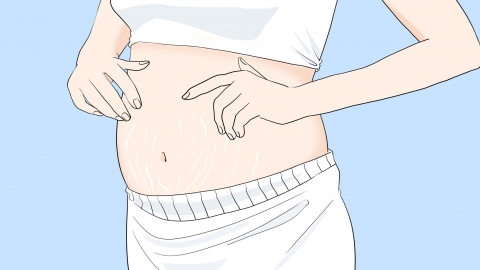What causes limb weakness and softness at 26 weeks of pregnancy, and what should be done?
Weakness and softness in the limbs at 26 weeks of pregnancy may result from high energy consumption during pregnancy, improper posture, anemia, gestational diabetes, hypocalcemia, or other causes. Symptoms can be improved through nutritional supplementation, adjusting body position, or medication. If symptoms persist or worsen, or are accompanied by dizziness and palpitations, prompt medical attention is necessary.
1. High energy consumption during pregnancy: In the second trimester, fetal development accelerates and maternal energy demands increase. Insufficient food intake may lead to low blood sugar, causing limb weakness, often accompanied by fatigue and dizziness. It is recommended to eat small meals frequently, increase protein and carbohydrate intake, and carry snacks like nuts to replenish energy promptly.
2. Improper posture: As the uterus enlarges, it may compress blood vessels. Prolonged sitting or standing can impair circulation, leading to inadequate blood supply to the limbs and resulting in weakness. It is advised to change positions regularly, avoid prolonged sitting or standing, and elevate the lower limbs appropriately during rest to promote blood return.

3. Anemia during pregnancy: Blood volume increases in mid-pregnancy, raising iron requirements. Insufficient iron intake may lead to anemia, reducing the blood's oxygen-carrying capacity and causing limb weakness, often with pallor and palpitations. Under medical guidance, medications such as ferrous succinate tablets, vitamin C tablets, or polysaccharide-iron complex capsules may be used to alleviate symptoms.
4. Gestational diabetes: Insulin resistance or insufficient insulin secretion during pregnancy can cause elevated blood glucose and impaired energy utilization, leading to limb weakness, along with increased thirst, hunger, and urination. Under medical supervision, medications such as insulin injection, metformin tablets, or insulin aspart injection may be used to manage symptoms.
5. Hypocalcemia: The developing fetal skeleton requires substantial calcium. If maternal calcium intake is inadequate, blood calcium levels may drop, causing abnormal neuromuscular excitability and limb weakness, often accompanied by leg cramps. Follow medical advice to use supplements such as calcium carbonate D3 tablets, calcium gluconate oral solution, or calcium lactate tablets to improve symptoms.
Daily care should include ensuring adequate sleep and avoiding excessive fatigue, maintaining a balanced diet rich in calcium, iron, and protein, engaging in light walking to promote circulation, and closely monitoring changes in personal symptoms.




